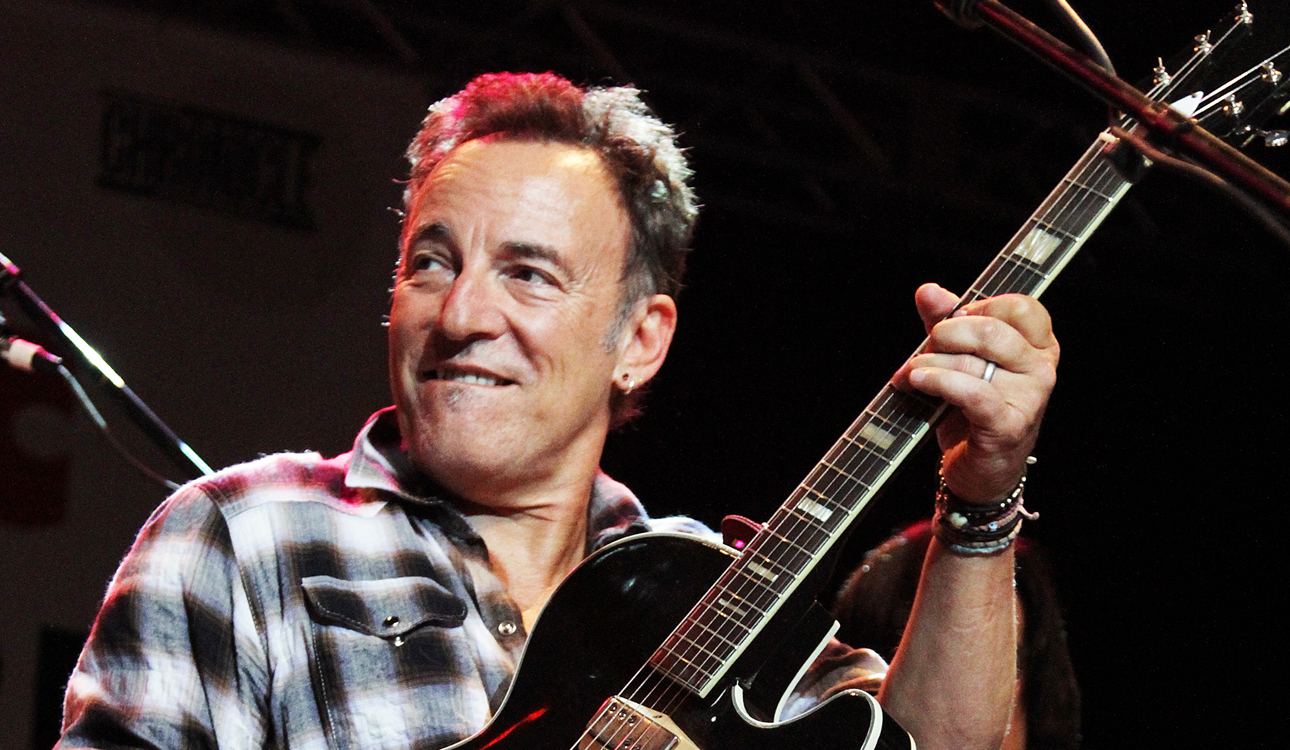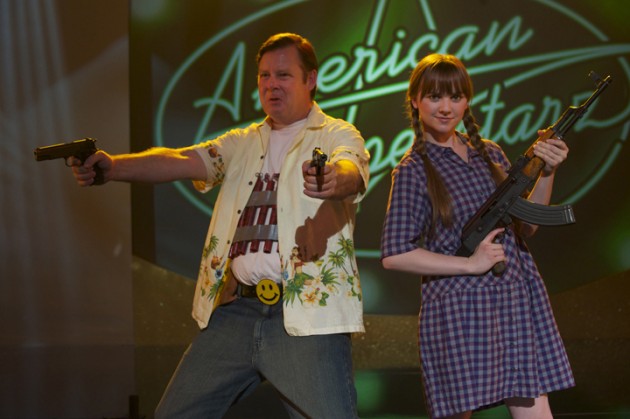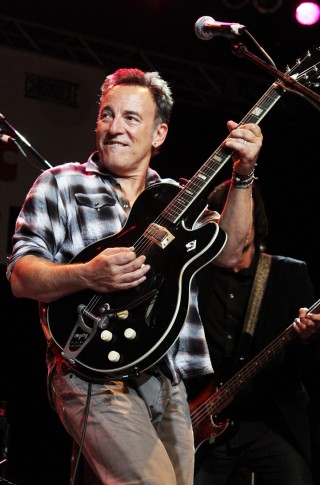

Courtesy Photo

Matt Hellman | Lariat Photo Editor
By Rob Bradfield
Reporter
One of the highlights of the SXSW Film lineup explores the darker, even homicidal, daydreams that many people have when pushed too far.
“God Bless America,” written and directed by Bobcat Goldthwait, tells the story of Frank and Roxy, a middle-aged man and teenage girl whose disgust with American society lead them on a cross-country killing spree. Instead of killing criminals or government officials, the pair focus on what makes our society truly repulsive: pop-culture icons.
Frank, played by Joel Murray, is a recently unemployed Vietnam veteran and estranged father. Early in the movie he has violent fantasies about solving all of his and society’s problems with a hail of lead, but remains mild mannered. That changes drastically when he finds out that his frequent migraines are caused by a terminal brain tumor.
During the first of several suicide attempts, he flips through several TV programs that are thinly veiled references to real shows like “American Idol” and “The O’Reilly Factor.” What eventually turns him away from killing himself is a version of MTV’s “My Super Sweet Sixteen,” where a teenage girl throws a fit over being given the wrong car.
What happens next can best be described as a Bonnie and Clyde style road trip, with overtones of Tarantino, “Juno” and “The Boondock Saints.”
After picking up Roxy, played by Tara Lynne Barr, the two drive through the country laying waste to political pundits, bigoted religious fanatics and (most chillingly) disrespectful movie patrons.
On the surface, the movie could appear to be nothing more than a homicidal fantasy carried out by two sociopaths. However, the two characters, who you almost grow to dislike after witnessing their nonchalance at taking a human life, eventually wiggle their way back into your heart.
More than two murderers, you see two people cast out by society finding friendship in each other. Roxy’s parents are there for her about as much as Frank can be with his only daughter — which is to say, not much — and the two form an endearing, if weird and violent, father-daughter relationship.
Goldthwait also explores the social dysfunctions that pushed Frank and Roxy over the edge. Roxy’s are part of the archetypal “outsider” theme — she hates anything and everything to do with the youth culture that has rejected her.
Frank is more concerned that people are polite. Frank’s conservatism and resignation to his ultimate fate play very well against Roxy’s “burn it all down” attitude.
What’s most striking about the film is the reactions of the audience. Instead of gasps or noises of disgust, the audience roared with laughter when, for example, Frank used a baby for aerial target practice during one of his fantasies.
It seems that for everything Frank and Roxy do, the people they kill are worse. Toward the end the viewer is cheering for the two mass murderers as they rid or country of the kind of scum that the laws don’t prosecute.
That’s what sets “God Bless America” apart from typical murder spree movies. The victims are all culpable in some way. Each one lacks all respect for others, and is arguably working actively to make the world a worse place.
In the end, the movie doesn’t advocate grabbing a gun and mowing down the next person that double parks their car.
Instead, it asks the questions that a society like ours ought to be asking itself. How do we judge a civil society? How do we treat the people around us? What as a nation should we really be caring about, instead of pop idols and displays of human depravity?
I don’t think anyone left that theater ready to go out and start changing the way our society works.
But maybe the next time we catch ourselves acting selfish, inconsiderate or frivolous, we can stop ourselves.





